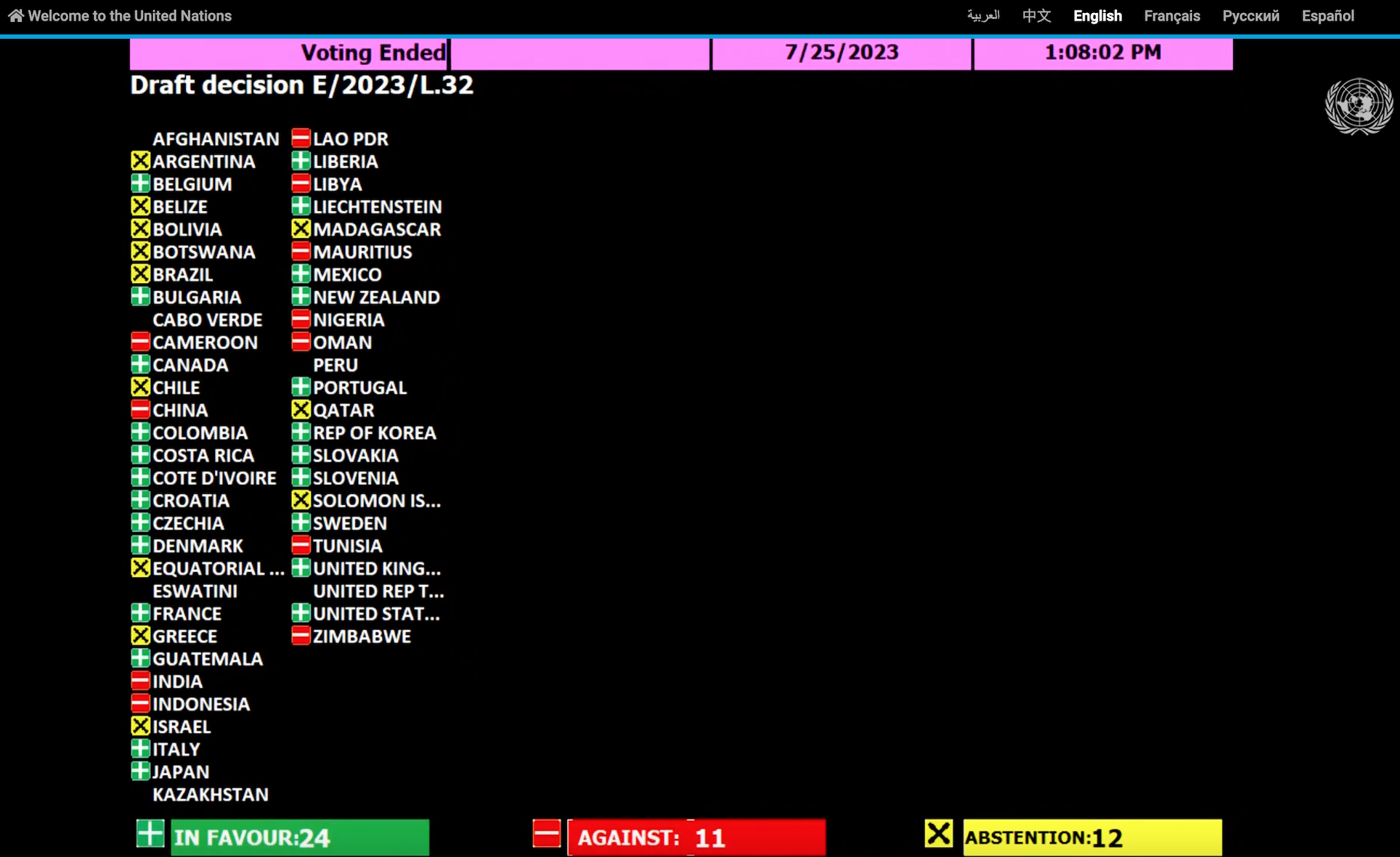Photo: Screenshot from UN Web TV

ECOSOC votes to grant 7 long-deferred NGOs consultative status
The UN Economic and Social Council (ECOSOC) voted in its Management Segment meeting to grant consultative status to seven NGOs that had been deferred for several years by the ECOSOC Committee on NGOs.
On Tuesday 25 July, a majority of Economic and Social Council (ECOSOC) Member States voted to grant ECOSOC consultative status to seven non-governmental organisations (NGOs) with 24 votes in favour, 11 votes against and 12 abstentions. The result of this vote overturned recommendations of the Committee on NGOs (NGO Committee), a 19 member subsidiary body of ECOSOC which had voted against granting consultative status to these NGOs. Granting of consultative status enables them to participate at the UN and offer their considerable expertise and knowledge in support of the UN’s work.
These seven NGOs are American Center for International Labor Solidarity, Christian Solidarity International (CSI), Database Center for North Korean Human Rights (NKDB), The Bar Human Rights Committee, The Center for Justice and Accountability, The Global Initiative against Transnational Organized Crime and The New Woman Foundation. The draft decision to grant consultative status to these cross-regional NGOs was introduced by the United States of America (USA) on the basis that their applications for consultative status had all been deferred for at least four years in spite of satisfactorily responding to Committee Members’ questions.
During the deliberations on the draft decision, ECOSOC Member States debated on the functioning of the NGO Committee and the role of ECOSOC as the parent body in ensuring the Committee fufills its mandate on civil society participation at the UN. The EU, Japan, USA, UK, Mexico, Italy, Germany, Armenia, New Zealand and Belgium delivered statements in explanation of their vote to grant status to these NGOs . The United States shared that the listed NGOs worked to advance all the three pillars of the UN, but were being blocked by the Committee which had an abysmal 33% accreditation rate in its latest session. The US also acknowledged that these seven NGOs represent a very small fraction of over 300 NGOs awaiting accreditation. Similarly, Belgium emphasised the dire need for overall reform of the NGO Committee but welcomed this step to grant a handful of legitimate NGOs consultative status. Several other States, including Germany and other EU States, called for reform of the NGO Committee including setting limits for deferrals.
India, China, Cameroon, Egypt, Nicaragua, Russia, Syria, Yemen (on behalf of the Arab group), Democratic People’s republic of Korea made statements against the decision to grant status. India, Syria and China argued that through such a decision, ECOSOC was interfering with the judgment of its specialised standing Committee. Nicaragua, Iran and China also accused the USA of politicisation and discrimination based on its selection of NGOs for this decision to grant consultative status.
ISHR welcomes the outcome of this vote granting consultative status to these seven NGOs that have been arbitrarily deferred, and the US’s leadership in introducing this decision. ‘The need for systemic reform of the NGO Committee in order to fulfil its mandate to facilitate civil society participation at the UN is evident,’ said Maithili Pai, ISHR’s lead on civil society participation at the UN. ‘While this vote is a relief to some NGOs that have been targeted for many years and an important step in reducing massive backlog, it is imperative that States commit to addressing the serious problems plaguing the Committee including its problematic membership and unfair working methods,’ she added.
Download as PDF